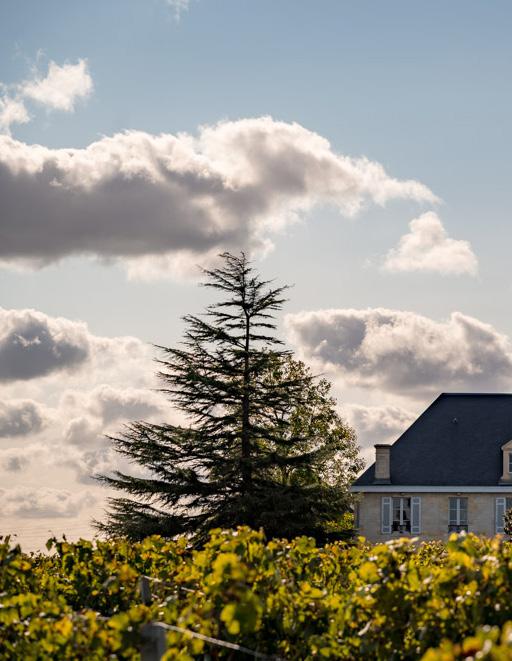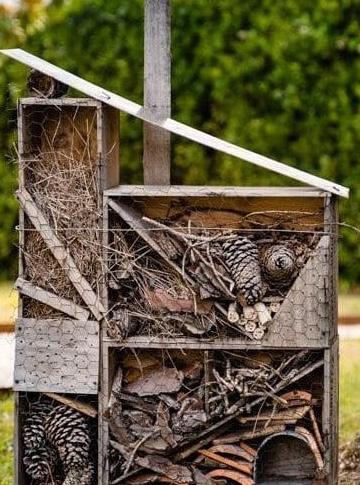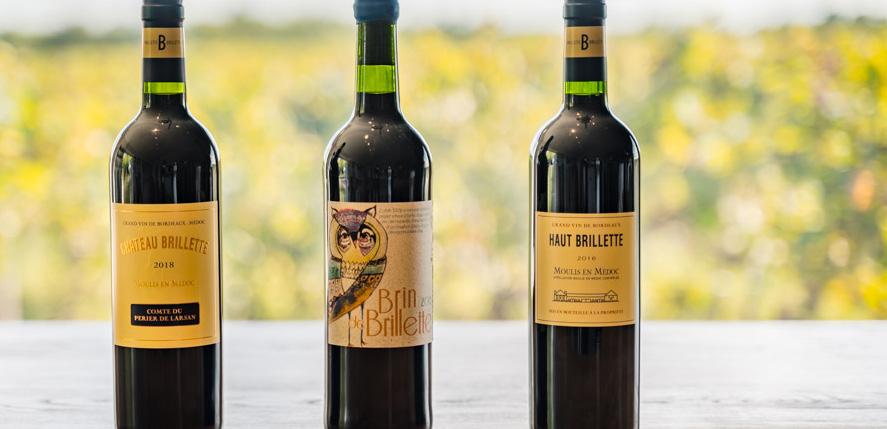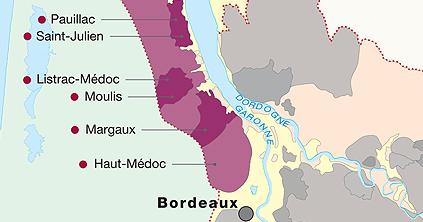
3 minute read
CHÂTEAU BRILLETTE
from Earth Day Heroes
by gregoryvine
AOC Médoc
A true natural setting, ideal for biodiversity!
Situated in the Moulis region of Médoc, Château Brillette has belonged to the Flageul family since 1975. The highly regarded property is situated on 247 acres, with vines planted on the best gravel soils of Moulis and more than 120 acres of native forest. Estate Manager Lucile Dijkstra finds Château Brillette an inspiring place for the sustainablyminded: “a true natural setting, ideal for biodiversity!”

LUCILE DIJKSTRA General Manager Started in 2017


In the Vineyard
Château Brillette believes in working with their natural environment by modifying it as little as possible through minimal impact. It’s a philosophy that inspires the whole team, and which has awakened real appreciation of the natural beauty that surrounds the estate. “As soon as I arrived in 2017, I acted to reduce all additives,” recalls Dijkstra. “No more chemical weedkillers, no more insecticides, no more CMRs, no more anti-botrytis treatments, all with the aim of eliminating unwanted traces in the wine. In 2018, I surrounded myself with interns and we made lists of everything that we could feasibly do to support biodiversity.” Many positive initiatives resulted, including planting more than 1,500 trees on the estate; mowing late in the meadows; leaving dead wood in the forests; and allowing more grass cover between the rows. The team also added beehives and birdhouses, while encouraging a growing colony of bats and cluster worms which reduced the need for pesticides (and resulted in savings of 2000 € per year).
In 2019, Château Brillette was awarded a First Prize Trophy by Terre de Vin and Sud Ouest, taking top honors in Bordeaux for their commitment to Biodiversity, Fauna and Flora.


Château Brillette has succeeded in shaking up the norm in Médoc, setting an example to follow in the Gironde.

Bio Packaging + Conservation in the Cellar
With the vineyard converted to biodiversity, work is now underway in the cellars, as evidenced by a 20% reduction in energy consumption costs over the past 2 years. Dijkstra credits the savings to changing habits and practices companywide – such as using less gas, water and electricity – and she is asking the same of her suppliers. Barrels are delivered free of plastic wrappings and boxes (saving 1.5 containers of waste), a best practice which has inspired many followers in the Gironde. As part of her vision to create a 100% eco-inspired cuvée created with minimal carbon footprint, Dijkstra has turned her attention to the bottle package, in favor of a lightweight alternative made from all-natural and 100% recyclable materials, including shorter natural stoppers, waterbased ink and plant pigments. Even the label is biodegradable.

A First Vegan Wine Release
Inevitably, biodiversity has also taken hold in the wine itself. In September 2020, the winery team released their first all-vegan wine: 2018 Brin de Brillette is an eco-driven cuvée that represents the culmination of biodiversity in action. It is a collective effort, further evidence of Dijkstra’s belief that “making everyone participate equally” is the way forward. The whole team takes pride in their wine and has won accolades like the National Ecodesign Trophy from Adelphe. 2018 Brin de Brillette is truly a beautiful wine, one which Dijkstra credits first to the character and quality of their terroir, and second to the expression of many eco-changes from vineyard to bottle. Best of all, it is a wine that has been successful in the market of public opinion, convincing more and more suppliers to take note of biodiversity. “It’s so good on the inside that it shows on the outside,” shares Dijkstra. She offers encouragement to any winery that wants to follow her lead: “With limited investment and lots of common sense, we can do great things.”










